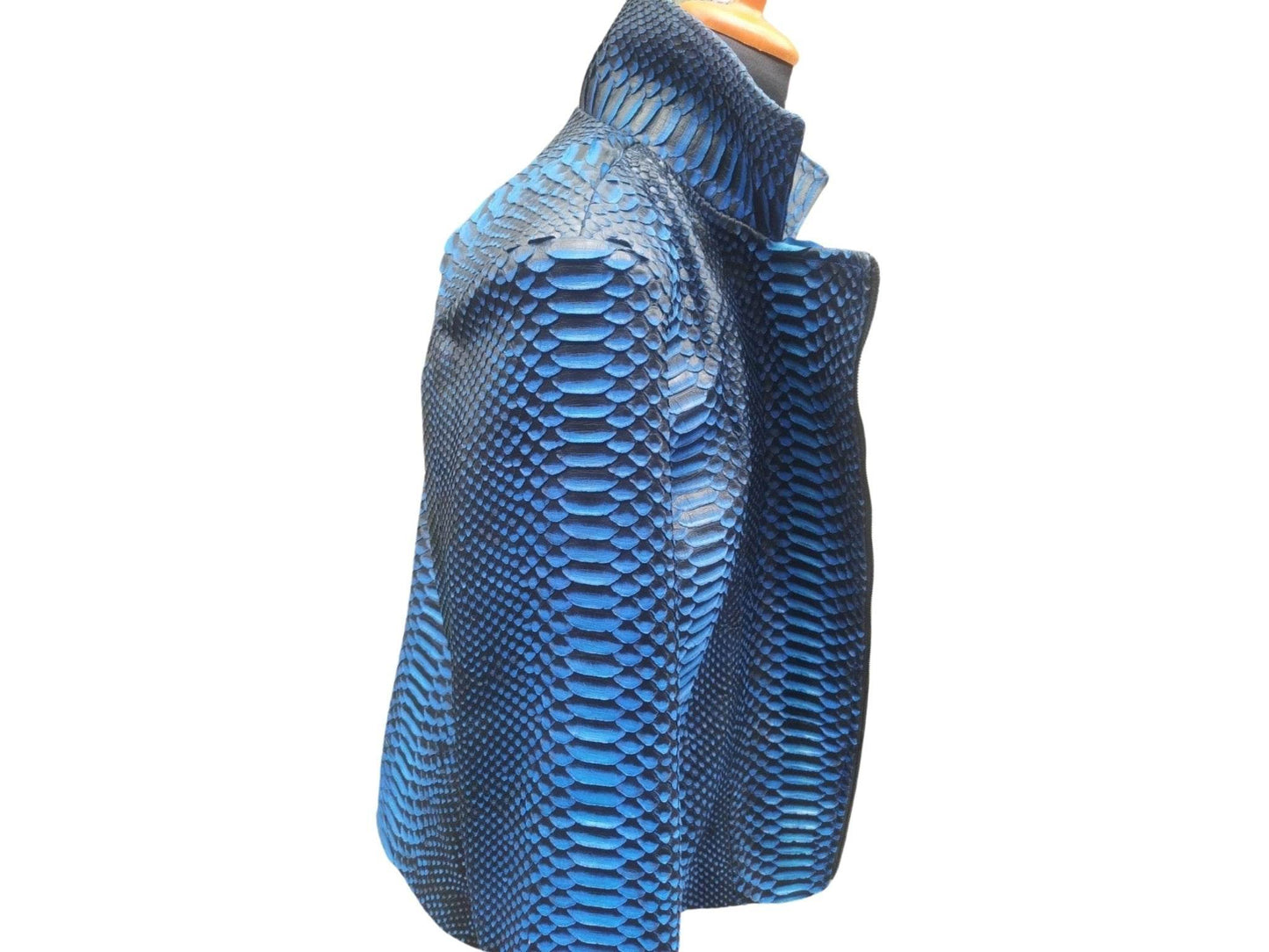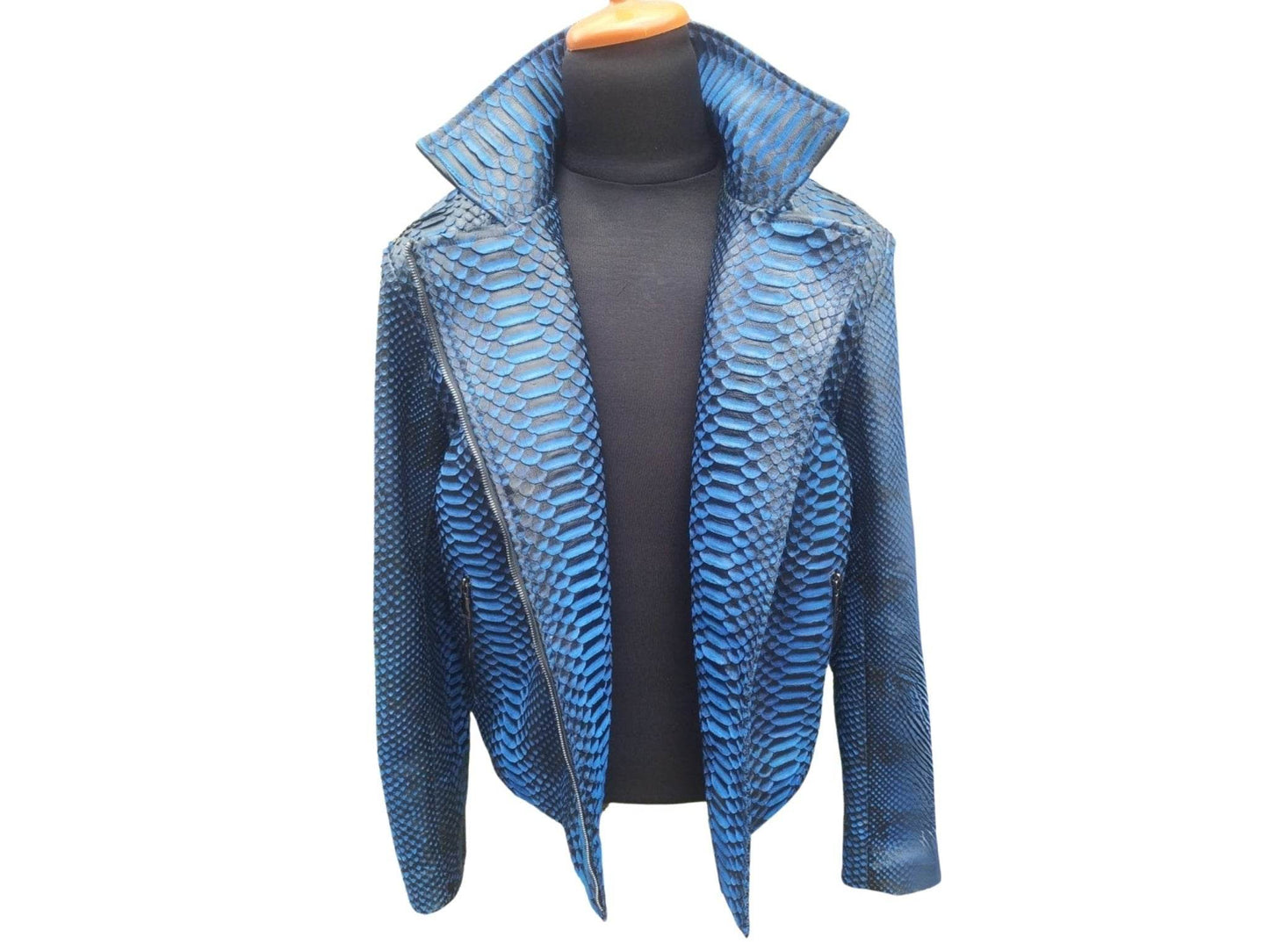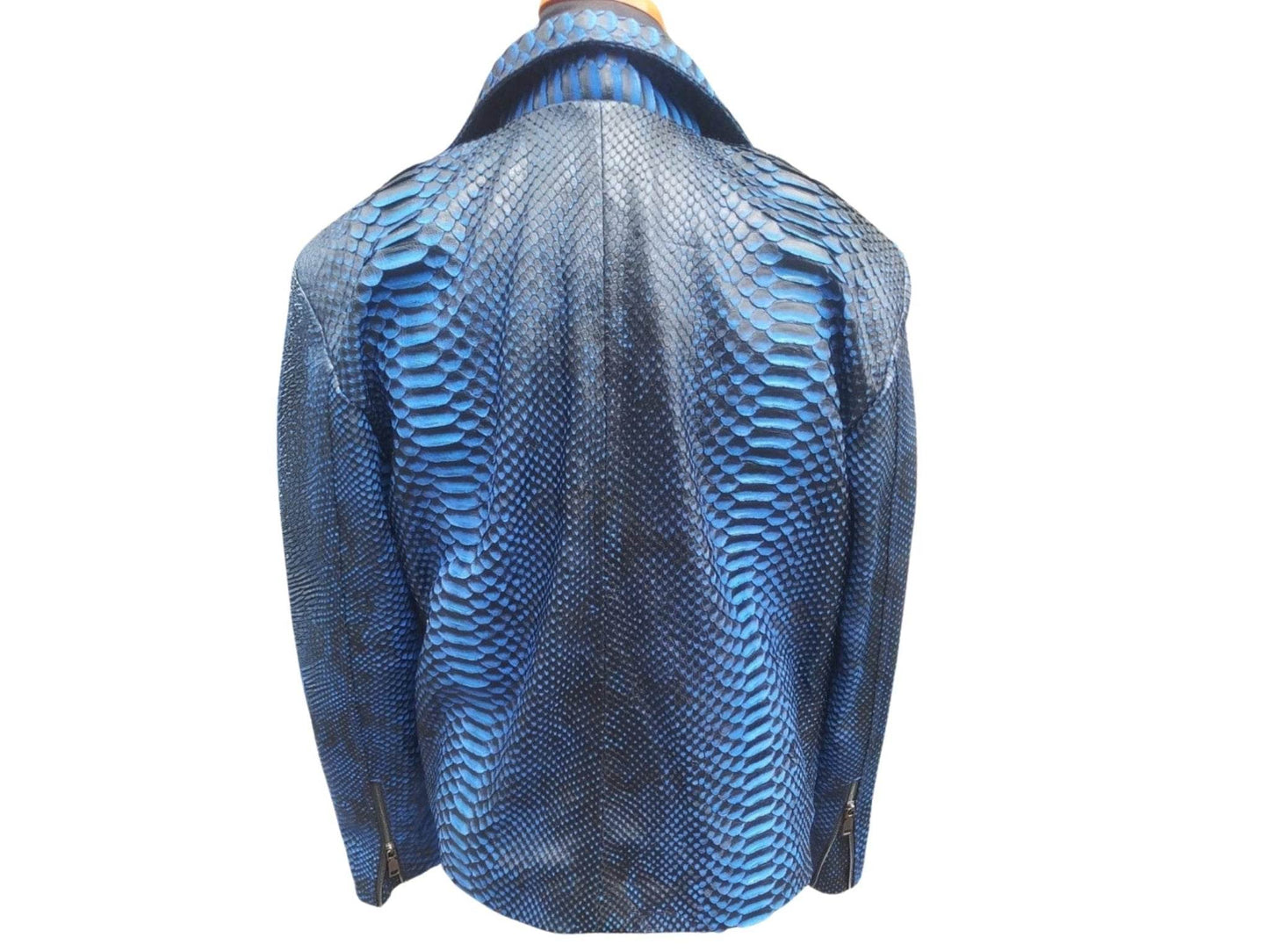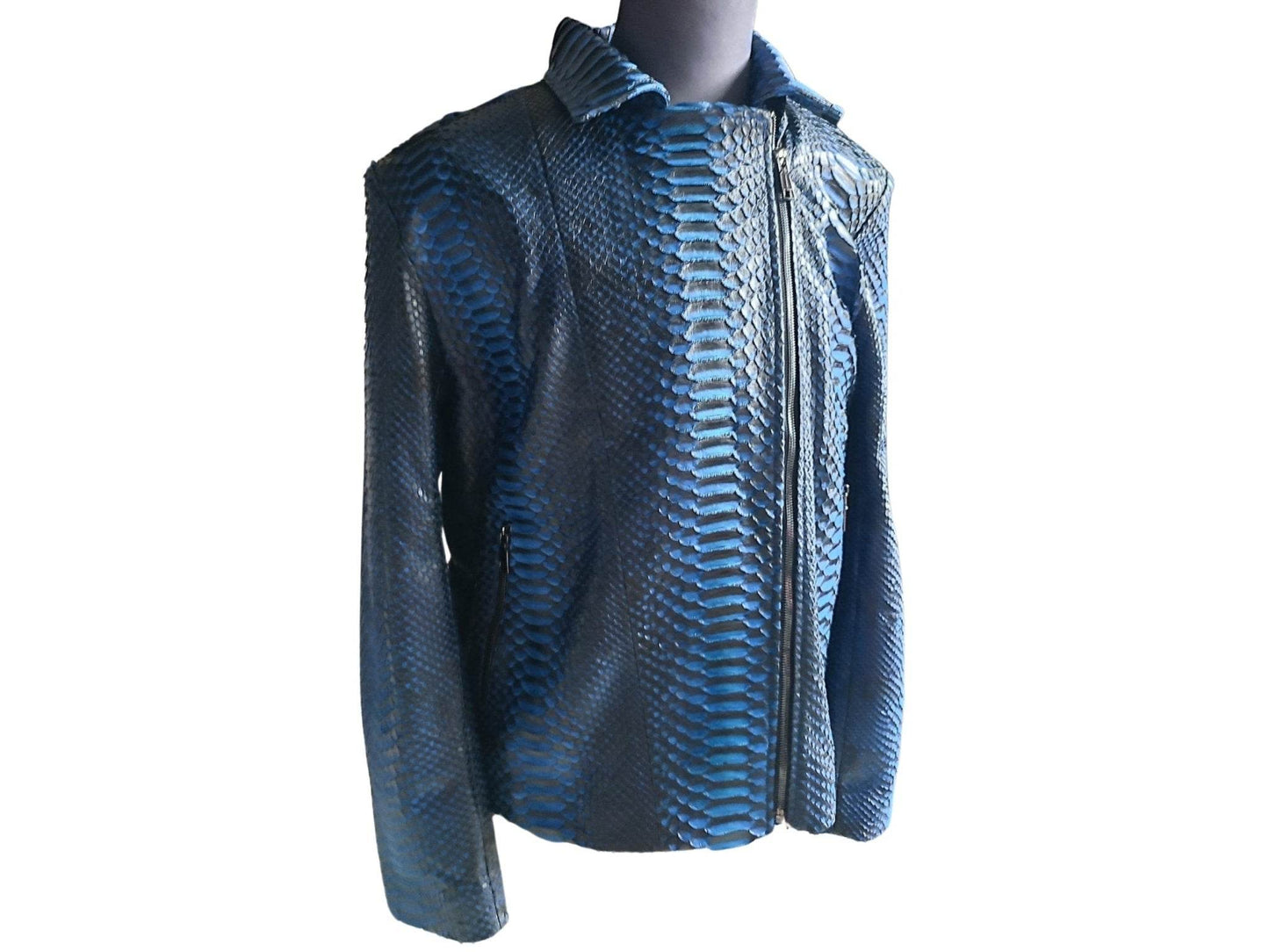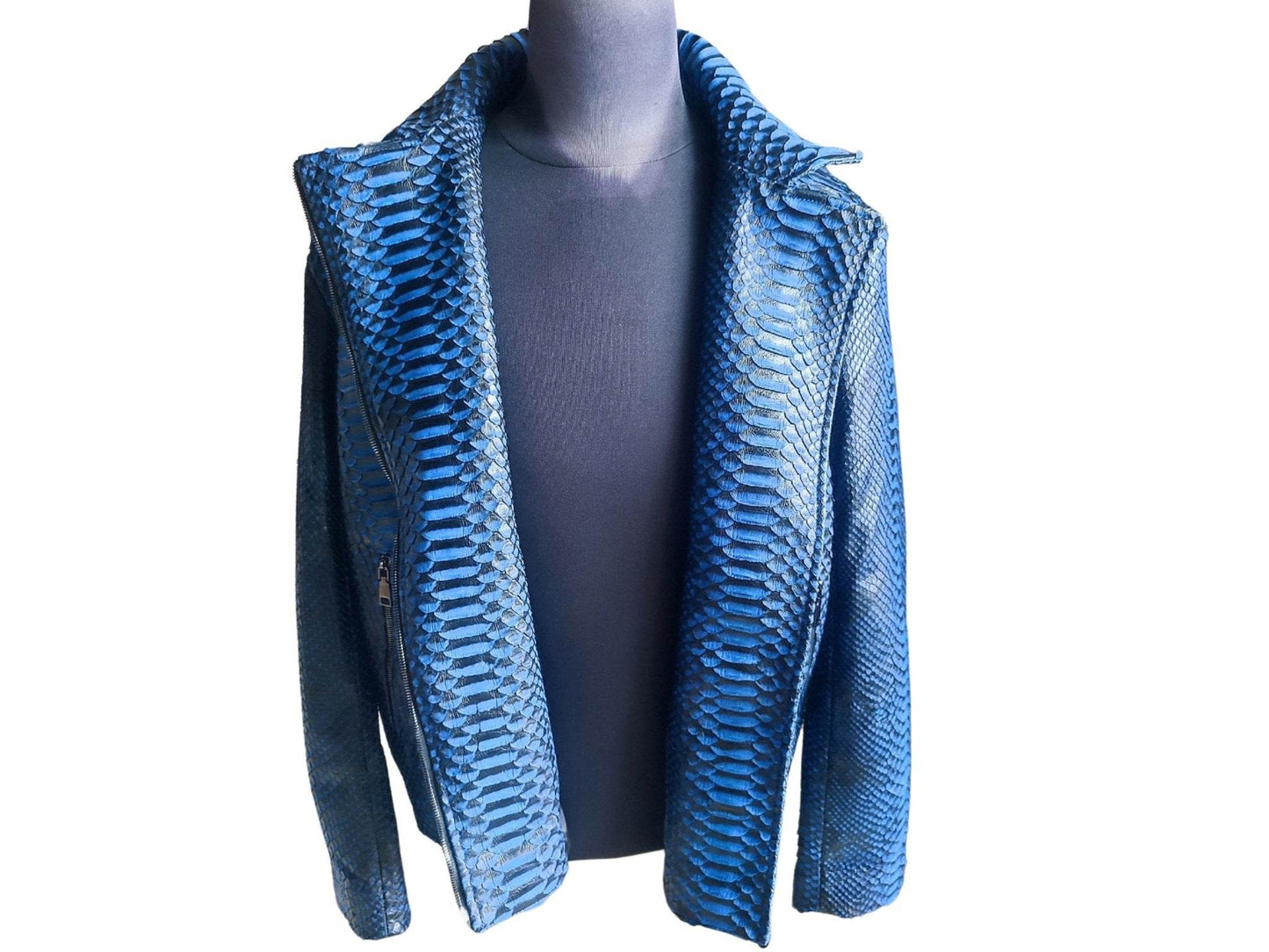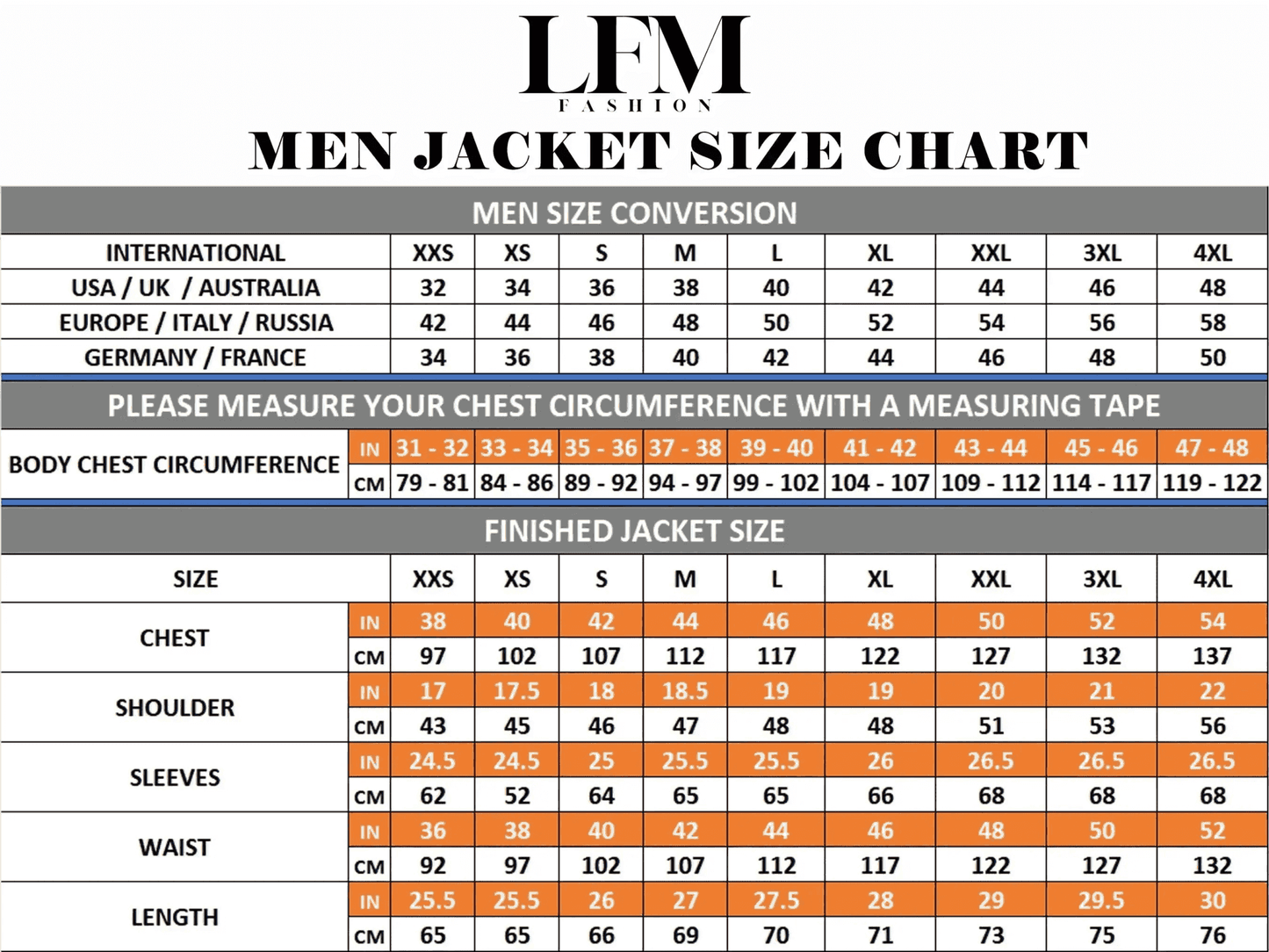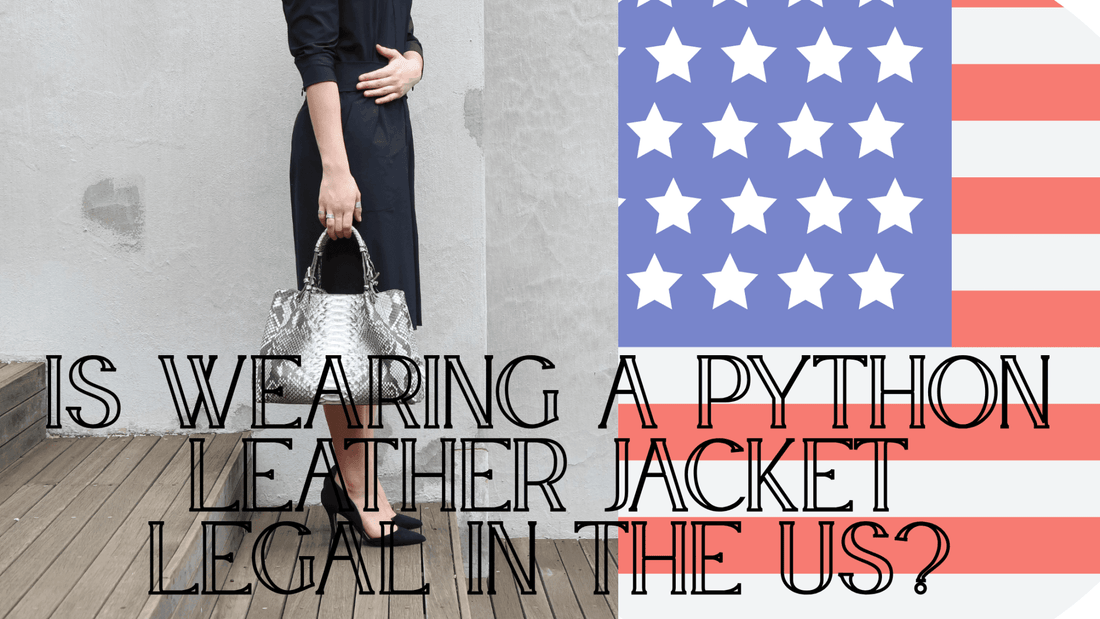
Is Wearing a Python Leather Jacket Legal in the US?
Share
Python Leather Skin Legal in the US
However, if you're gifting/buying something made from Python skin, and it's not intended for sale or part of a commercial transaction, it doesn't break the law. California says you can take python leather skin across state lines, but not to sell.

In the world of fashion, python leather has long been a symbol of luxury and sophistication. From sleek jackets to stylish handbags, the distinctive reptilian pattern has captivated the hearts of many. However, as conscious consumers, it's essential to understand the legal implications of owning and wearing python leather products in the United States.
The legality of python leather is a complex issue that intersects with federal wildlife protection laws and international trade regulations. The Convention on International Trade in Endangered Species (CITES) has placed certain python species under strict trade controls, making it crucial for consumers to be aware of the sourcing and documentation requirements.
In the United States, the Endangered Species Act (ESA) and the Lacey Act work together to regulate the import, export, and interstate commerce of python leather products. These laws aim to protect vulnerable species and ensure that any trade in python-derived goods is conducted in a sustainable and ethical manner.
When it comes to purchasing a python leather jacket, consumers must exercise caution and diligence. Reputable retailers should be able to provide clear documentation and certification that the leather used in their products was sourced legally and ethically. Without proper paperwork, consumers may inadvertently find themselves on the wrong side of the law.
Fortunately, there are alternative options for those who wish to enjoy the aesthetic of python leather without the legal risks. Sustainable leather options, such as those derived from farmed or captive-bred pythons, are becoming increasingly available. Additionally, advancements in faux leather technology have produced convincing alternatives that mimic the python pattern without harming any animals.
As the fashion industry continues to evolve, it's crucial that we, as consumers, make informed and responsible choices. By understanding the legal landscape surrounding python leather and exploring ethical alternatives, we can ensure that our sartorial preferences align with our values and contribute to a more sustainable future.
The Complexities of Python Leather Regulations
The legality of python leather is a nuanced topic that requires a deeper understanding of federal wildlife protection laws and international trade agreements. The Endangered Species Act (ESA) and the Lacey Act, for instance, play a crucial role in regulating the import, export, and interstate commerce of python-derived products.
Under these laws, certain python species are classified as threatened or endangered, making it illegal to trade in their parts or products without proper documentation and permits. The Convention on International Trade in Endangered Species (CITES) further complicates the matter by establishing a global framework for the regulation of wildlife trade.
Navigating the Legal Landscape as a Consumer
When it comes to purchasing a python leather jacket, consumers must be vigilant in ensuring that the product they're buying is sourced legally and ethically. Reputable retailers should be able to provide clear documentation and certification that the leather used in their products was obtained in compliance with all relevant laws and regulations.
Without proper paperwork, consumers may unknowingly find themselves in possession of illegal goods, which can result in hefty fines and even criminal charges. It's essential to do your due diligence and ask the right questions before making a purchase.
Exploring Ethical Alternatives
Fortunately, there are alternative options for those who wish to enjoy the aesthetic of python leather without the legal risks. Sustainable leather options, such as those derived from farmed or captive-bred pythons, are becoming increasingly available. These products often come with the necessary documentation and certifications to ensure they are legally and ethically sourced.
Additionally, advancements in faux leather technology have produced convincing alternatives that mimic the python pattern without harming any animals. These synthetic materials offer a cruelty-free solution for fashion-conscious consumers who want to indulge their style without compromising their values.
Conclusion
The legality of python leather in the United States is a complex issue that requires careful consideration. By understanding the relevant laws and regulations, consumers can make informed choices that align with their values and contribute to a more sustainable fashion industry. Whether you opt for a legally sourced python leather jacket or explore ethical alternatives, your fashion decisions can have a meaningful impact on the world around us.






